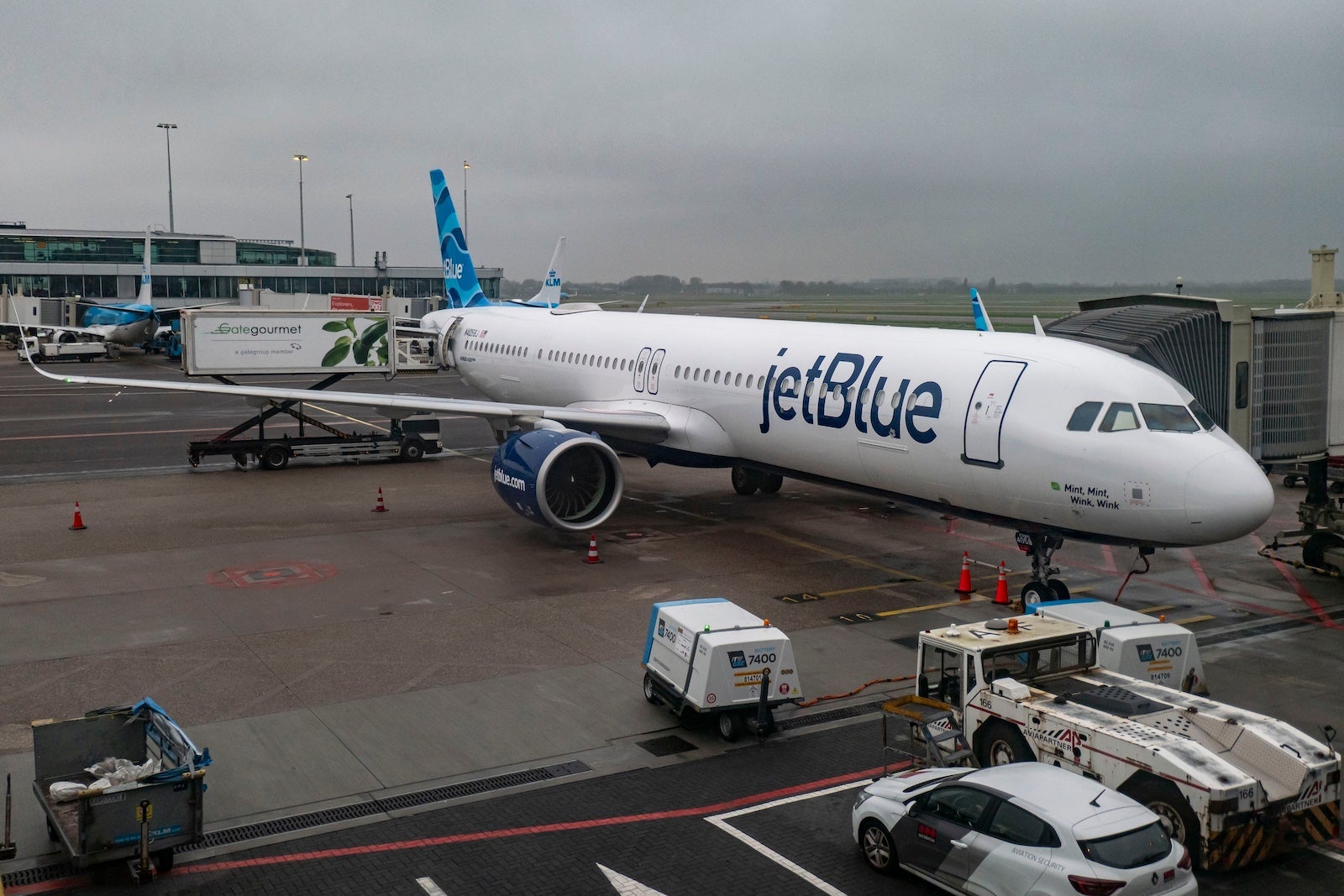The best credit cards for JetBlue flyers
Editor's Note
JetBlue has arguably some of the best snacks among domestic airlines and offers free inflight Wi-Fi and the most legroom in economy — what's not to love? Here, we've picked the top credit cards that fit the various needs of loyal JetBlue flyers, including four cobranded options from Barclays and three general travel cards.
Comparing the best cards for JetBlue flyers
| Card | Best for | Welcome bonus | Earning rates | Annual fee |
|---|---|---|---|---|
Frequent JetBlue flyers | Earn 70,000 bonus points and 5 Mosaic Tiles after spending $5,000 on purchases and paying the annual fee in full, both within the first 90 days. |
| $499 | |
Casual to frequent JetBlue flyers | Earn 70,000 bonus points after spending $1,000 on purchases and paying the annual fee in full, both within the first 90 days. |
| $99 | |
Casual JetBlue flyers | Earn 10,000 bonus points after spending $1,000 on purchases within the first 90 days. |
| No annual fee | |
Small-business owners | Earn 50,000 bonus points after spending $2,000 on purchases and paying the annual fee in full, both within the first 90 days of account opening. |
| $99 | |
Everyday spending | Earn 75,000 bonus miles after spending $4,000 on purchases within the first three months from account opening. Plus, upon approval, you'll receive a $250 Capital One Travel credit to use during your first year. |
| $95 | |
Frequent travelers | Earn 75,000 bonus points after you spend $5,000 on purchases in the first three months from account opening. |
| $95 | |
All-around travel credit card | Earn 125,000 bonus points after spending $6,000 on purchases in the first three months of account opening.
|
| $795 |
The information for the JetBlue Premier, JetBlue Card, the JetBlue Plus Card and the JetBlue Business Card has been collected independently by The Points Guy. The card details on this page have not been reviewed or provided by the card issuer.
JetBlue Premier Card
New JetBlue Premier cardholders can earn 70,000 bonus points and five Mosaic Tiles after spending $5,000 on purchases and paying the annual fee in full, both within the first 90 days.
Based on TPG's April 2025 valuations, this welcome bonus is worth $945.
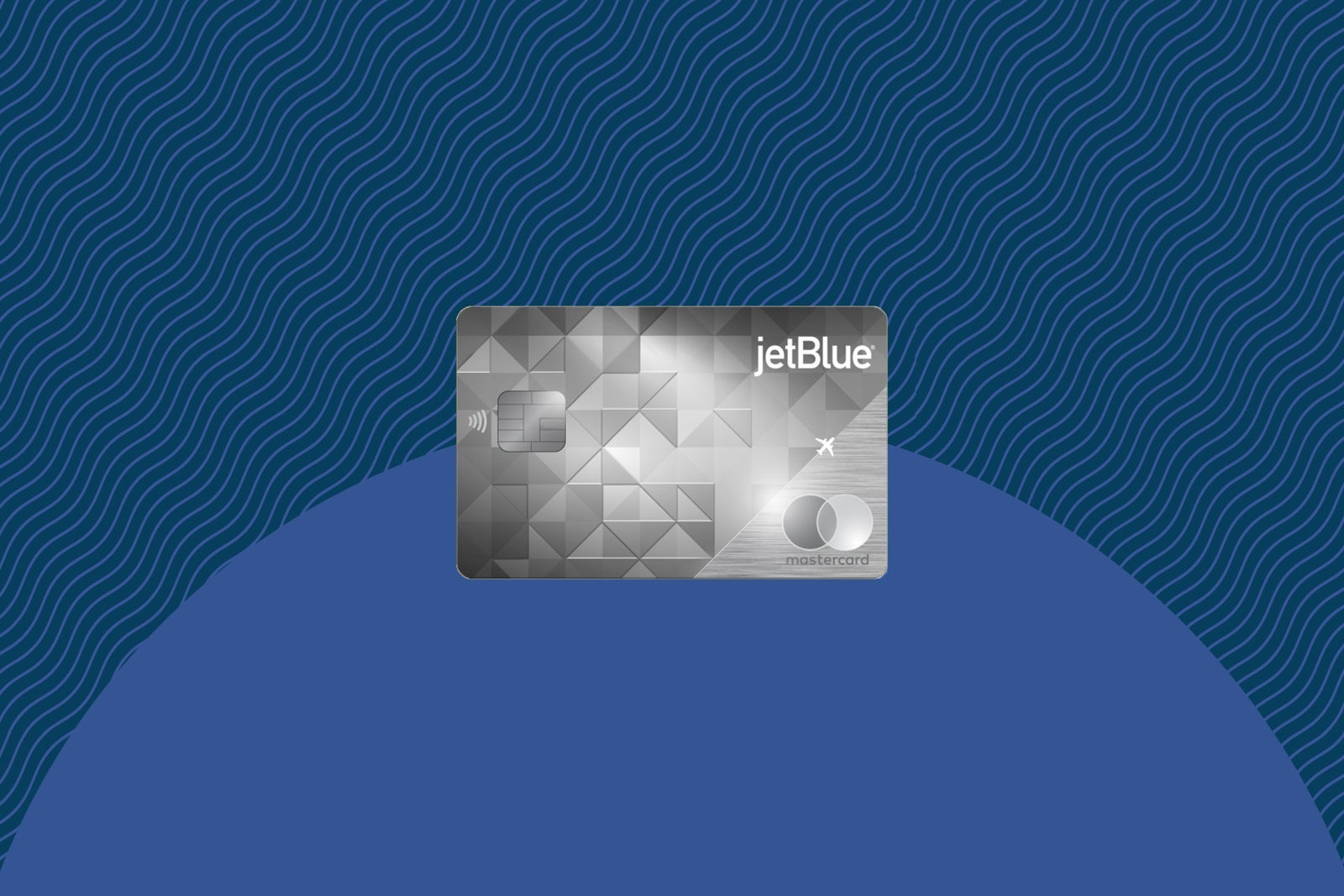
The Premier card is JetBlue's most premium card, best suited for JetBlue's most loyal flyers. With benefits like a free checked bag, priority boarding and a TSA PreCheck/Global Entry application fee credit every four years, this card could be a solid addition for the most frequent JetBlue flyer.
This card also comes with a Priority Pass Select membership that includes restaurant access, a feature that isn't included in many other cards' Priority Pass memberships.
Other benefits include 5,000 bonus points each anniversary, a 50% discount on eligible inflight purchases and the ability to earn Paisly statement credits.
Although this card offers substantial benefits, we generally recommend the more affordable JetBlue Plus instead.
Learn more: JetBlue Premier Card

JetBlue Plus Card
New JetBlue Plus Card cardholders can earn 70,000 bonus points after spending $1,000 on purchases and paying the annual fee in full, both within the first 90 days.
According to TPG's April 2025 valuations, this welcome bonus is worth $945, a great return for such a low minimum spending requirement.
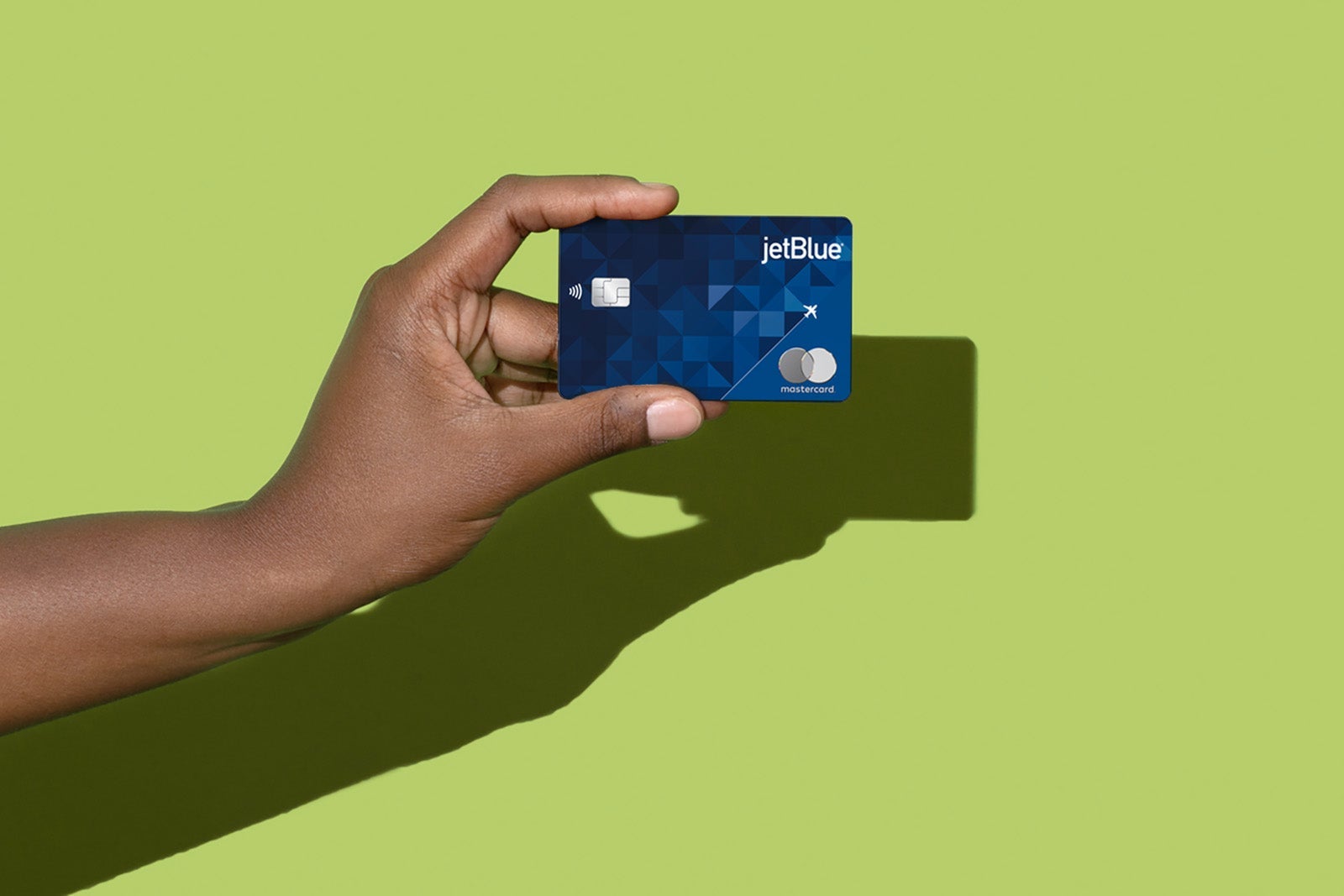
This is JetBlue's mid-tier option with a reasonable $99 annual fee. For frequent JetBlue flyers, this card is an absolute must. For starters, you'll get a free checked bag for you and up to three travel companions on your reservation and the earnings rate are the same as those of the more premium JetBlue Premier Card.
If you don't need all the premium perks found on the Premier Card, the Plus Card can be a solid option with an almost identical welcome offer that requires 80% less in minimum spending.
Other benefits include getting 10% of your points back when you redeem them for a JetBlue flight, a $100 annual statement credit for JetBlue Vacations (when you spend $100 or more), 5,000 anniversary bonus points each account year, a 50% discount on eligible inflight purchases and no foreign transaction fees.
You can also use the card's Points Payback feature to redeem points for statement credits.
Learn more: JetBlue Plus Card
JetBlue Card
When you can't justify paying an annual fee every year, the JetBlue Card is a decent airline card worth considering.
While it lacks many of the perks associated with the JetBlue Plus and JetBlue Premier, it still offers a decent rewards rate of 3 points per dollar on eligible JetBlue and purchases, 2 points per dollar on restaurants and groceries and 1 point per dollar on everything else.
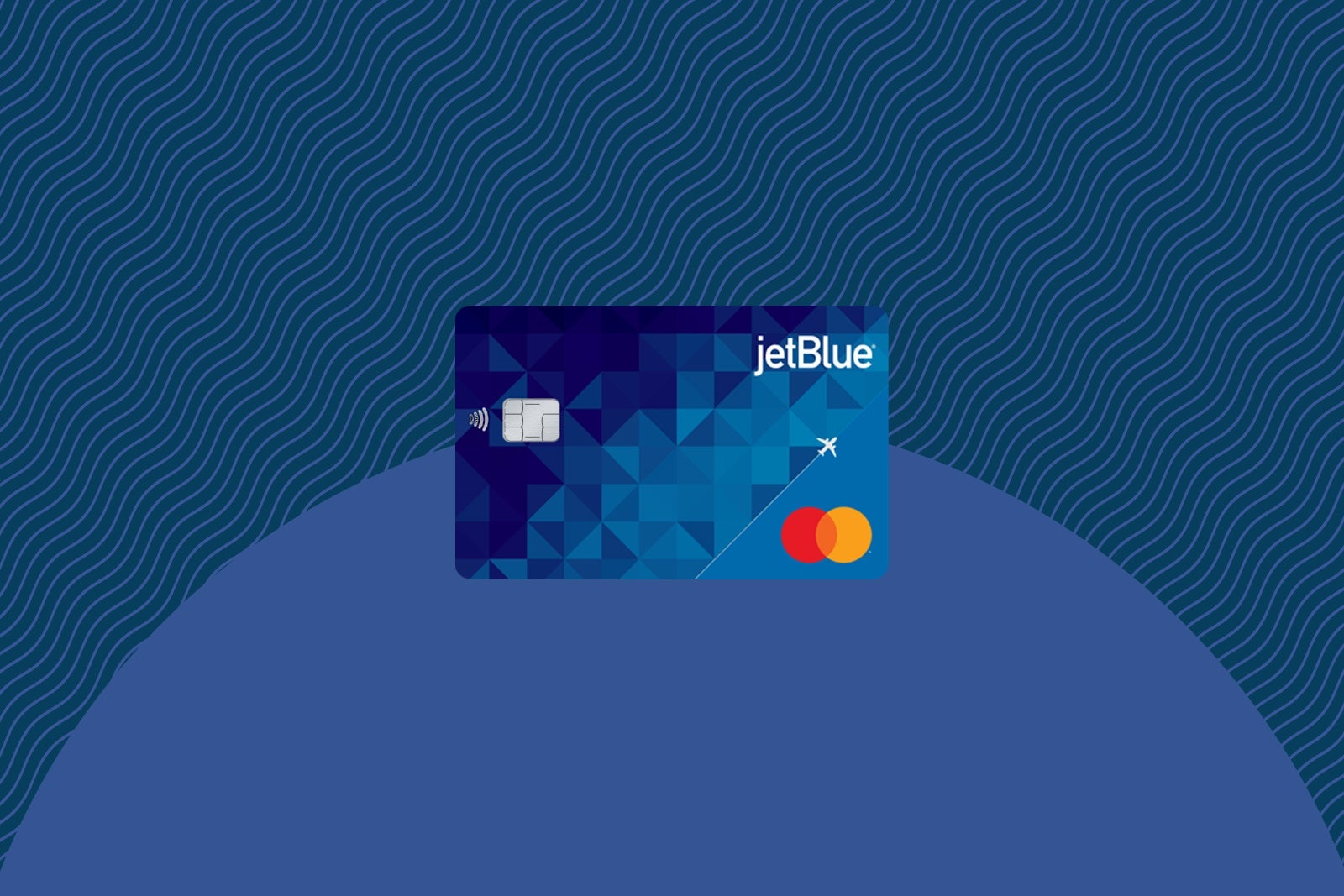
The tradeoff is the welcome bonus is much smaller. You'll earn 10,000 bonus points after spending $1,000 on purchases in the first 90 days.
TPG's April 2025 valuations peg this welcome bonus at just $135. However, you'll still enjoy a 50% inflight discount on eligible purchases and no foreign transaction fees for any travel abroad.
Learn more: JetBlue Card
JetBlue Business Card
If the JetBlue Plus card is the most appealing option for you in this guide so far, business owners or freelancers may want to consider the JetBlue Business Card instead.
This card also gives you the chance to earn up to 50,000 bonus points after spending $2,000 on purchases and paying the annual fee in full, both within the first 90 days of account opening.
Earning this bonus will get you $675 in value, according to TPG's April 2025 valuations.
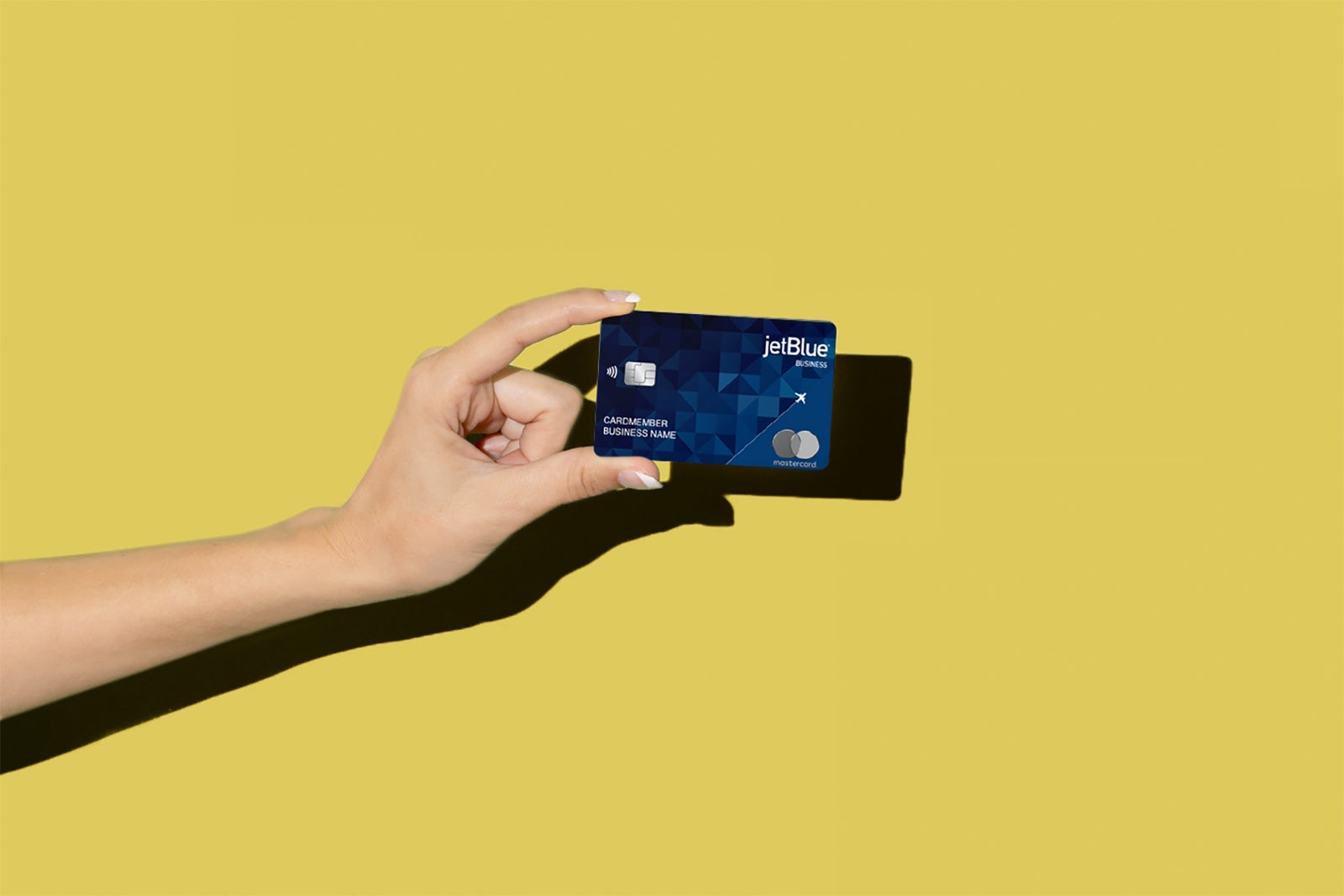
With a $99 annual fee, the credit card perks are virtually the same as the JetBlue Plus Card. You'll get a free checked bag for you and three companions, Group A boarding on JetBlue-operated flights, 50% off on eligible inflight purchases, 10% of your points back when you use them for a JetBlue flight, 5,000 bonus points each card anniversary and an annual $100 statement credit toward JetBlue Vacations (when you spend $100 or more).
But with the JetBlue Business, the earning rate is slightly different. You'll still get 6 points per dollar on JetBlue and Paisly purchases, 2 points per dollar at restaurants and 1 point per dollar on all other purchases, but you'll also earn 2 points per dollar at office supply stores.
If this is a more lucrative way for you to earn points, you'll want to apply for this card instead of the consumer JetBlue Plus.
Learn more: JetBlue Business Card
Capital One Venture Rewards Credit Card
If the rewards rates of either the JetBlue Plus Card or the JetBlue Card don't appeal to you, you may be better off with a card with a less structured rewards rate. With the Capital One Venture Rewards, you won't have to juggle multiple bonus categories if your purchases are scattered and vary outside of traditional everyday spending.
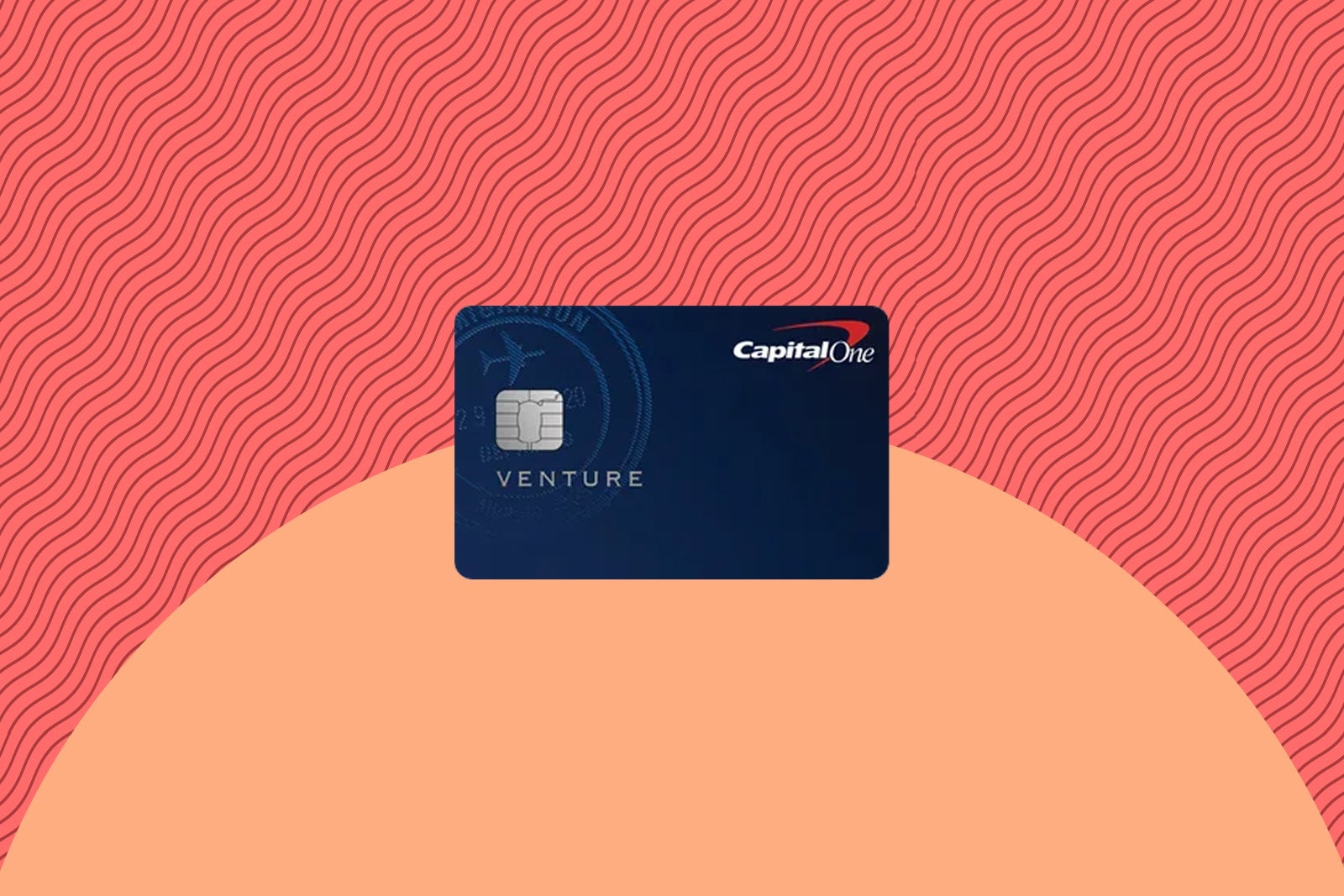
You'll earn unlimited 2 miles per dollar on all purchases, whether it's your gym membership or your veterinary bills. You'll also earn 5 miles per dollar on hotels, vacation rentals and rental cars booked through Capital One Travel.
The Capital One Venture Rewards comes with a $95 annual fee but offers a welcome bonus. New cardholders can earn 75,000 bonus miles after spending $4,000 on purchases within the first three months from account opening. Plus, upon approval, you'll receive a $250 Capital One Travel credit to use during your first year. In return, you'll receive a welcome bonus of $1,638, including the travel credit (based on TPG's April 2025 valuations).
You can use your miles to "pay" for any recent travel-related purchases (such as JetBlue flights) at a fixed rate of 1 cent each. Alternatively, you can transfer your miles directly to any of Capital One's 15-plus airline and three hotel transfer partners.
While JetBlue is on this list, miles transfer at an unfavorable 5:3 ratio. You'll get better value using your miles to pay for a JetBlue flight booked with cash.
While you won't get any JetBlue-specific perks, you'll still enjoy no foreign transaction fees and an application fee credit for Global Entry or TSA PreCheck.
To learn more, check out our full review of the Capital One Venture Rewards Card.
Learn more: Capital One Venture Rewards
Chase Sapphire Preferred Card
The Chase Sapphire Preferred Card is one of our must-haves for award travelers. For a $95 annual fee, you'll earn 75,000 bonus points after you spend $5,000 on purchases in the first three months from account opening.
TPG's April 2025 valuations peg Ultimate Rewards points at 2.05 cents each, equating to a whopping $1,538 in value.
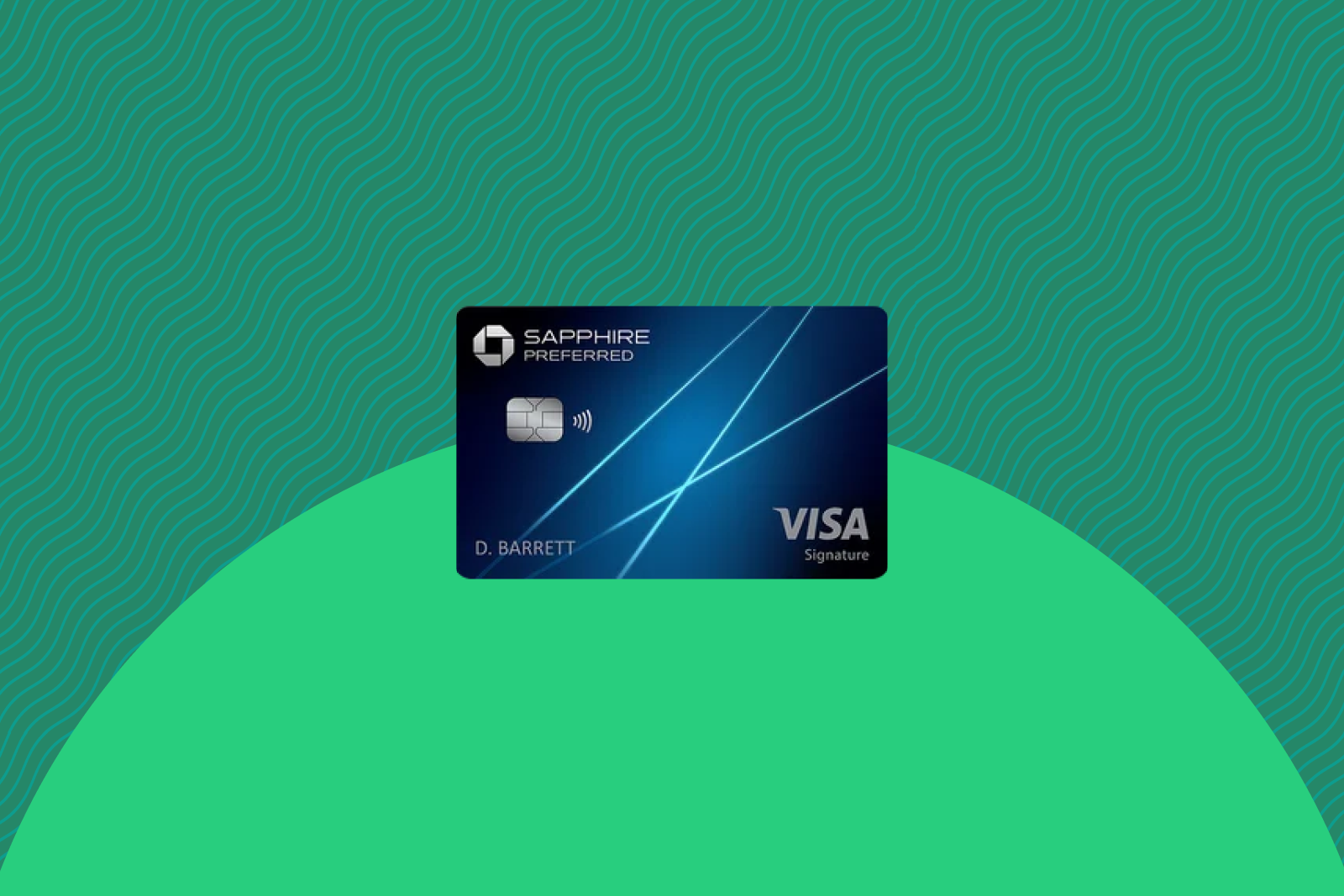
We like this card so much because you can transfer your Ultimate Rewards points at a 1:1 ratio to Chase's 14 airline and hotel partners, including JetBlue.
This means your welcome bonus can be worth 75,000 TrueBlue points if you wish. Another option is to use your points to book through Chase Travel at a value of up to 1.75 cents per point, depending on the specific redemption (see your rewards program agreement for full details).
This card also comes with awesome partner benefits with DoorDash and Lyft as well as an unmatched portfolio of travel and shopping protections. Like the other travel cards in this guide, you won't be charged foreign transaction fees.
DoorDash benefits require activation by Dec. 31, 2027; Lyft benefits are good through Sept. 30, 2027.
To learn more, check out our full review of the Chase Sapphire Preferred.
Apply here: Chase Sapphire Preferred
Chase Sapphire Reserve
If you're a luxury traveler (perhaps you're a regular patron of JetBlue Mint), you may be looking for a flexible card with premium perks. If that's the case, consider applying for the Chase Sapphire Reserve.
New cardholders can earn 125,000 bonus points after spending $6,000 on purchases in the first three months of account opening.
According to TPG's June 2025 valuations, this welcome offer is worth $2,563, including the Chase Travel credit.
Although there's a $795 annual fee, many frequent travelers will appreciate this card's benefits. You'll get a $300 annual travel credit, which can be applied to virtually any travel purchase.
You'll earn 4 points per dollar on flights and hotels booked directly (after the first $300 is spent annually on travel), 3 points per dollar on dining purchases worldwide and 1 point per dollar on all other purchases.
Your points are worth up to 2 cents per point when you book travel through Chase Travel (depending on the specific redemption; see your rewards program agreement for full details). Like the Chase Sapphire Preferred, you can opt to transfer your points to Chase's transfer partners instead, including JetBlue.
Since JetBlue doesn't offer any airport lounges yet, you'll be happy to know that this card comes with Priority Pass access to more than 1,700 lounges worldwide. Plus, you'll be able to access Chase's growing network of Sapphire lounges.
To learn more, check out our full review of the Chase Sapphire Reserve.
Apply here: Chase Sapphire Reserve
Which JetBlue card are you eligible for?
Barclays issues four JetBlue credit cards. If you've received the welcome bonus on the JetBlue Plus, you won't be eligible for the welcome offer on the JetBlue Premier. Additionally, Barclays can be very inquiry-sensitive, so it's best to be under 6/24 before applying for either card.
Meanwhile, the JetBlue Business Card doesn't count as a personal card and is subject to other rules. Owning this card would not disqualify you from opening a JetBlue Plus Card or JetBlue Card, for example. There are many ways to qualify for a business card, even if you don't own a brick-and-mortar store.
Who should get a JetBlue card?
JetBlue TrueBlue is a decent loyalty program that offers redemption options at reasonable rates. In the past, we've seen redemptions as low as 3,000 points one-way.
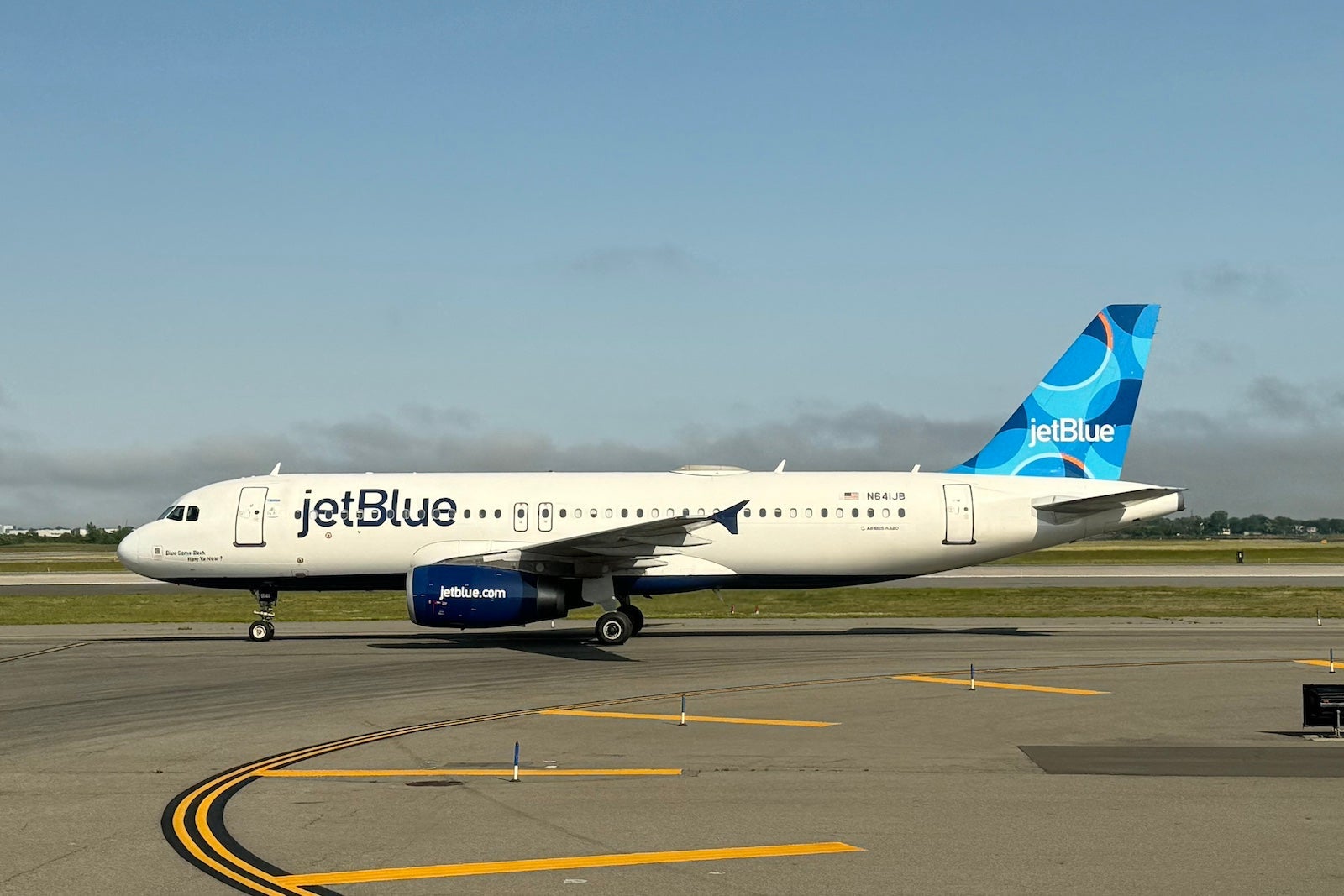
If you're a frequent JetBlue flyer, you'll want to open the JetBlue Plus or JetBlue Business to take advantage of nice perks such as a free checked bag and a points rebate on award bookings.
Otherwise, it makes sense for most travelers to get a credit card that earns transferable points or miles like the Capital One Venture Rewards, Chase Sapphire Preferred or the Chase Sapphire Reserve. This lets you diversify your points and miles portfolio and doesn't lock you into earning with just the JetBlue TrueBlue program.
Bottom line
Although JetBlue is not part of a major airline alliance, that may be a plus for many award travelers trying to find good deals on redemptions or who mainly fly on domestic routes.
As you start to plan more trips, now may be a good time to apply for a new travel rewards card to jump-start earning the welcome bonus and take advantage of these perks.


